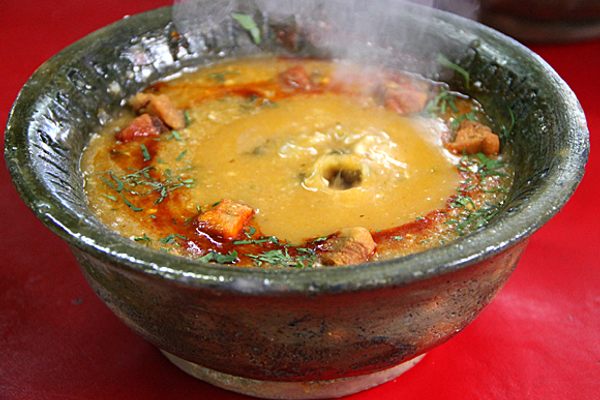On August 22, 1791, enslaved Haitians launched a revolt that would ultimately end in the founding of their sovereign nation. Thousands of people, most of them captured from their native Africa and brought to the island to work on sugar plantations, battled against their French oppressors. Twelve riotous years later, Haiti was declared independent on January 1, 1804, and ever since, citizens celebrate their day of liberation by enjoying a soup that colonists once forbade them from eating.
During the years of French rule, soup joumou, made from a pumpkin-like squash of the same name, was prepared by the enslaved, for their enslavers. They marinated beef in aromatics and citrus, chopped a bounty of produce, plucked herbs, and peeled squash. Everything went into an enormous pot and was left to slowly stew. When the squash was tender, the cooks scooped it out, pureed it, and added it back to the rich and hearty soup. After all their work, it was illegal for the cook to taste their finished product, so it’s no surprise the nation takes great pride and pleasure in eating it now. It’s common for Haitians to eat joumou throughout New Year’s Day, dipping into the pot four or five times over the course of the holiday.
Written By
 cecilyannwong
cecilyannwong
Sources
- www.slate.com/articles/life/history/2015/08/the_most_successful_slave_rebellion_in_history_created_an_independent_haiti.html
- www.britannica.com/topic/Haitian-Revolution
- history.state.gov/milestones/1784-1800/haitian-rev
- library.brown.edu/haitihistory/5.html
- wlrn.org/post/soup-joumou-haitian-new-year-tradition-reminder-slave-led-revolution
- www.saveur.com/article/Recipes/Soup-Joumou-Recipe
- www.geniuskitchen.com/recipe/soupe-joumou-haitian-pumpkin-soup-soupe-au-giramoun-204430













